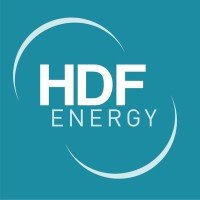Nikola and E.ON plans to achieve CO2 savings by 2027

Nikola Energy and E.ON Hydrogen, confirmed their goal of making hydrogen fuel cell electric vehicles (FCEVs) cost competitive to diesel trucks, in terms of total cost of ownership.
This is an important step on the road to decarbonizing heavy-duty transport. Nikola Energy is a wholly-owned subsidiary of Nikola Corporation, a global leader in zero-emission transportation and energy infrastructure solutions. E.ON Hydrogen is a wholly-owned subsidiary of E.ON SE, one of Europe’s largest operators of energy networks and energy infrastructure and a provider of innovative customer solutions.
Combining their expertise in energy, infrastructure and transportation, Nikola and E.ON will offer customers a first-of-its-kind integrated mobility solution. The envisaged joint venture will cover the entire value chain of the hydrogen industry from the supply of green hydrogen to the establishment of a demand-driven fueling infrastructure, to the provision of FCEVs.
By 2027 and progressing thereafter, the partnership plans to supply green hydrogen to power up to 5,000 hydrogen-powered Nikola Tre FCEV cabovers with a range of up to 800 km. As a result, up to 560,000 metric-tons of CO2 is expected to be saved annually by 2027, further increasing the following years, making an important contribution to the EU’s sustainability goals.
Michael Lohscheller, President and CEO Nikola Corporation, said, “In everything we do, we look at the needs of our customers, who continue to be impressed by the innovative technology found in our industry-leading zero-emission Nikola Tre trucks. To ensure the hydrogen infrastructure is in place to support our customers, we are working with our partner E.ON on cost-efficient and sustainable road transport solutions. Significant interest in our bundled lease program consisting of the Nikola Tre FCEV, hydrogen fuel and maintenance is a game changer for the industry and is an added benefit as it simplifies and lowers the total cost of ownership for fleet and truck owners.”
Patrick Lammers, COO Customer Solutions E.ON SE, said: “Our customers want affordable, integrated and, most important, green mobility solutions. As early as 2027, we could potentially replace over 200 million liters of diesel with hydrogen and significantly reduce CO2 emissions – and this is just the beginning. Together with Nikola we will create the first commercially viable market for hydrogen fuel cell technology in Europe.”
Nikola Corporation and E.ON announced their partnership in September this year with the intent to combine Nikola´s innovative technology solutions in the transportation industry with E.ON’s expertise in energy networks and customer solutions. The joint venture for hydrogen logistics services will start operating beginning of 2023.
